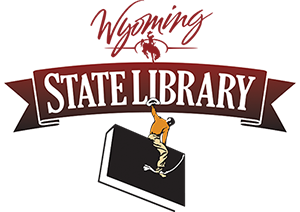 By Doug Johnson
By Doug Johnson
Via the Blue Skunk Blog
Librarians, you cannot afford to have an adversarial relationship with your principal. You cannot even afford a principal who is an “agent of benevolent neglect.” You need an administrator who actively supports you and your program.
Your principal needs you as well—as a cheer-leader and co-conspirator for change efforts. As a staff development resource for new programs. As an educator who can positively affect the learning environment of the whole school. As a researcher for best practices information. How exactly does your principal rely on you? Are you important enough to be listened to?
Principals and librarians need to be firm allies in helping their schools change in positive ways.
And it will be up to you, not your principal, to create this alliance. Here are some concrete ways you can do so…
1. Report regularly and formally. We should all be sending out a written (emailed) quarterly principal’s report and a monthly faculty bulletin. These should be upbeat, useful, and short. Every newsletter that goes to parents needs a library column. Including digital photos of happy library-using kids. Administrators HATE surprises – good and bad.
2. Know your principal’s goals and interests. Can you rattle off right now the three or four things your principal considers important in your school? Test scores? Climate? Meaningful technology use? For what is your principal being held accountable by her boss? Where do your services and your principal’s goals overlap?
3. Be seen outside the library. If your principal sees you on committees, attending school events and even in the teacher’s lounge, not only can you chat informally about library matters, but you send a powerful non-verbal message as well: I am full member of the school staff.
4. Disagree with your principal – when necessary. You may think that some ideas of your principal may not be in the best interests of your students or staff. If that’s the case, you have an ethical duty to give your reasons to your principal. But this is important: do so in private. Always voice your support in public; always voice your differences in private.
5. Do not whine. What is whining and how does it differ from constructive communication efforts? Robert Moran in his book Never Confuse a Memo with Reality says it best: “Never go to your boss with a problem without a solution. You are paid to think, not to whine.” I know it feels good to just let it all out sometimes about things that really can’t be changed. But listening to that sort of venting is what your spouse, your mom, or your cat is there for.
6. Do NOT advocate for yourself or your library. Advocate for your library users. Advocating for libraries sounds, and usually is, self-serving. When you talk to your principal whether proposing a plan, asking for funds, telling what’s happening in the library, or suggesting a solution to a problem, make sure it clear the underlying reason is “It’s a change that will be good for our kids and staff.”
7. Be a leader as well as a follower. Our communication efforts can and should not just inform, but persuade others, guide the directions of our organization, and improve our effectiveness. If we don’t create the positive changes in our schools that improve kids lives, just who the heck will? Clear articulation of our values and beliefs helps create strong relationships.
This work is licensed under a Creative Commons Attribution-Noncommercial-Share Alike 3.0 United States License.
